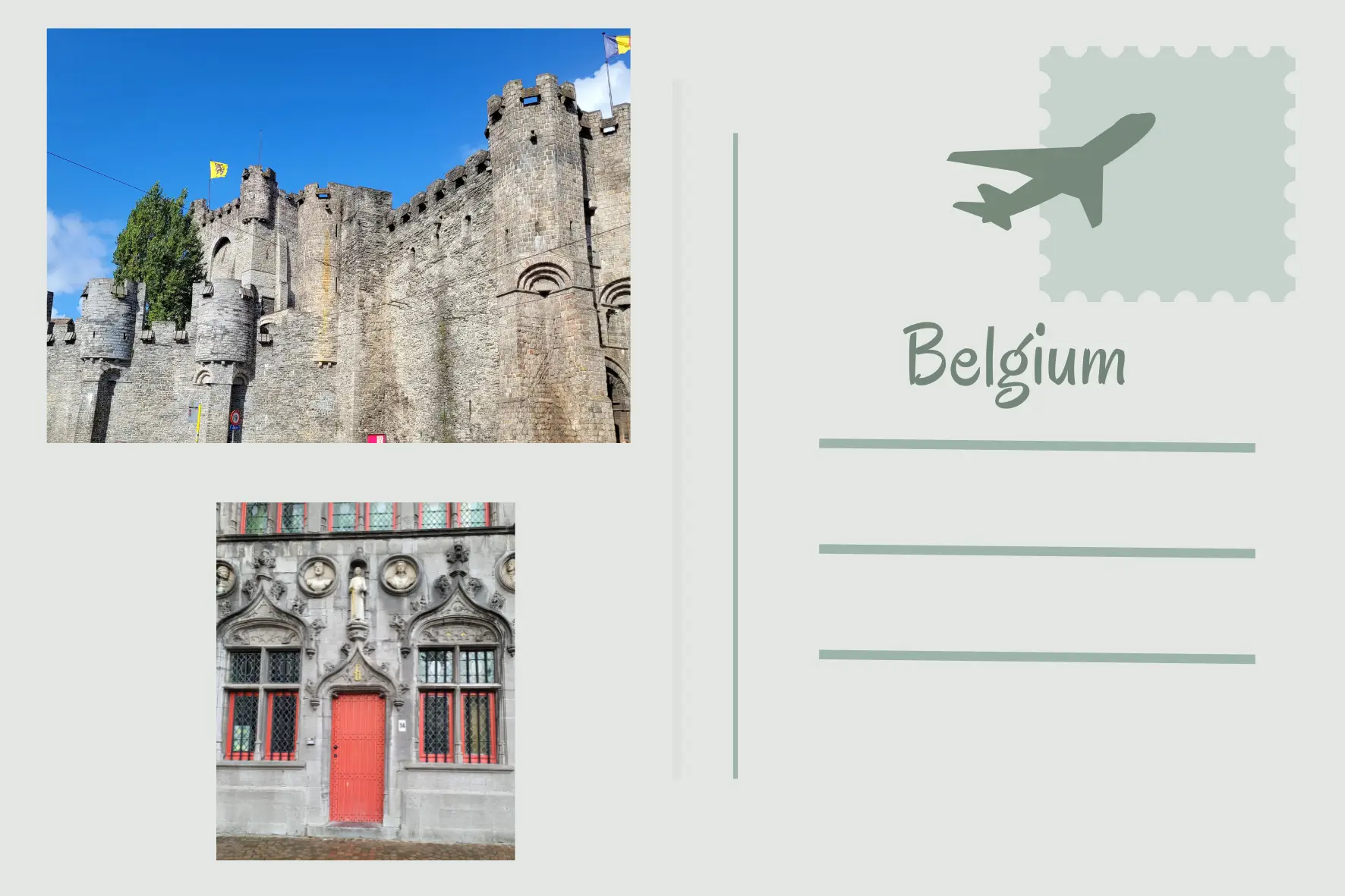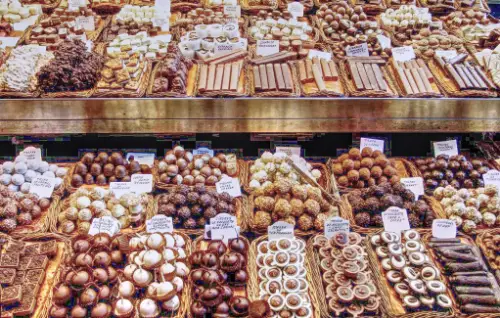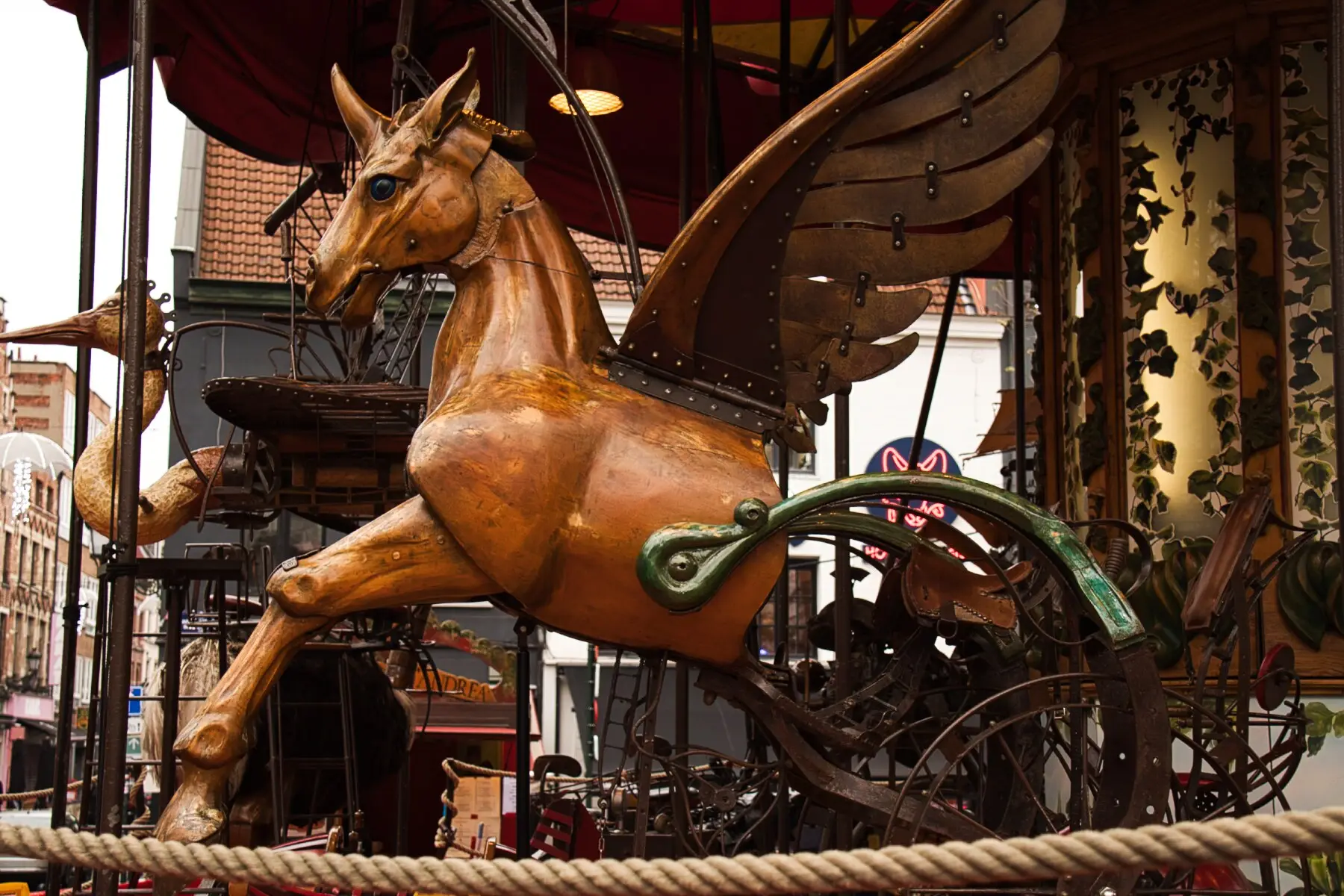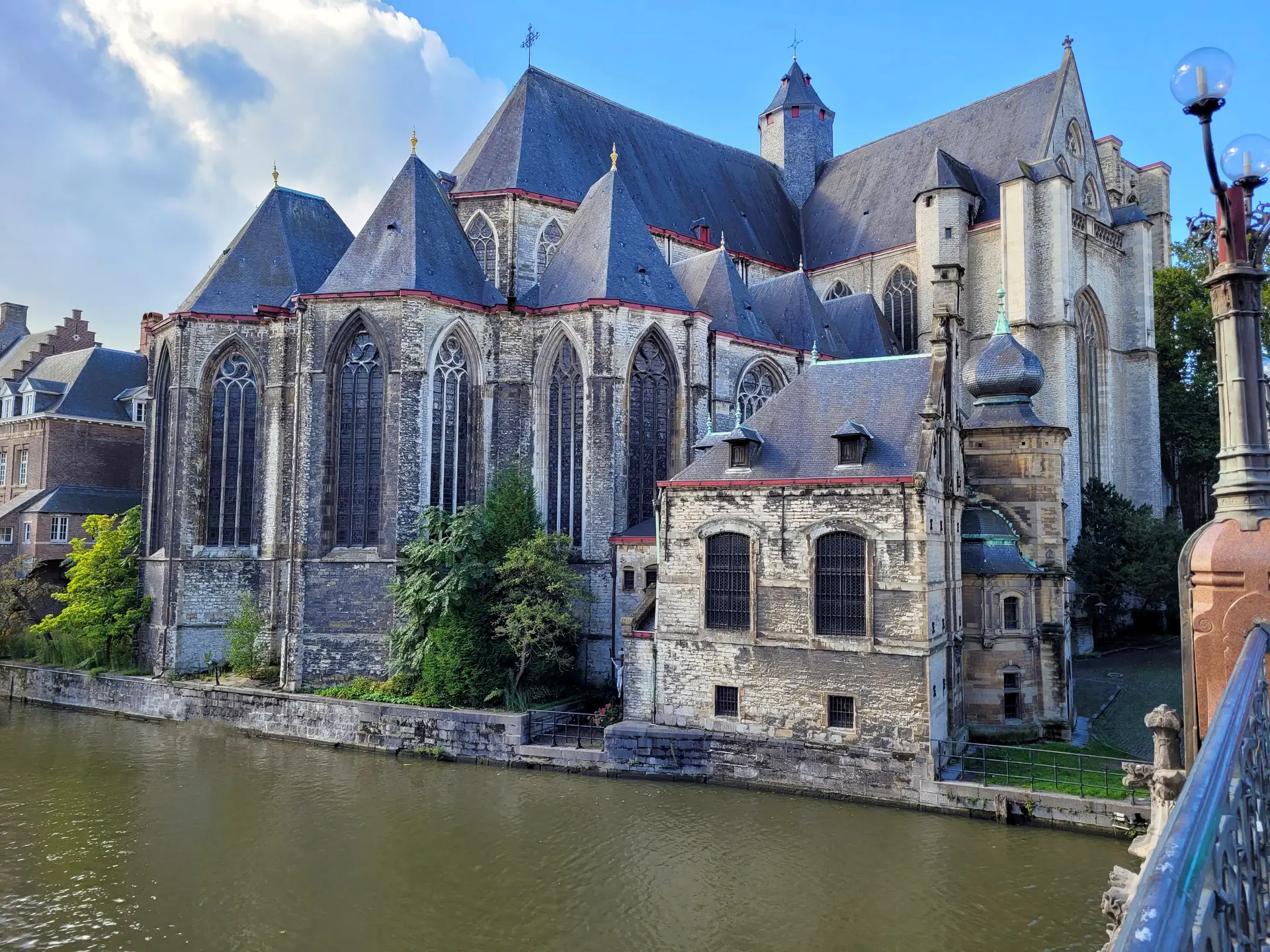Belgium

Belgium, a Western European country at the crossroads of Europe, is known for its rich history, stunning architecture, and cuisine, a delightful blend of flavours and influences.
The country’s culinary scene is a journey from the famous Belgian chocolates to the diverse and exciting beer selection and the irresistible waffles. The government is divided into two central regions, Flanders and Wallonia, each with its own language, culture, and traditions.
Brussels, the capital, is not just a city but a hub for international diplomacy and cooperation. It’s home to the European Union and NATO headquarters, making it a city of immense global significance. Its role in shaping the world’s political landscape is imposing.
Belgium is also famous for its chocolate, beer, and waffles, which are enjoyed around the world. But the authentic charm lies in its cities. Visitors can explore Bruges’s enchanting medieval streets or Ghent’s vibrant cultural scene, each offering a unique and captivating experience that will leave you eager to visit.
Belgium offers a unique blend of history, culture, and modernity, making it a fascinating destination for travellers. This intriguing mix is sure to excite and captivate visitors.
Keep In Mind

When planning your trip, it is essential to consider the weather. The winter months, from November to March, can be pretty cold. However, spring and fall are great times to visit as the weather is pleasant and there are fewer tourists.
During fall, the countryside is transformed into a breathtaking canvas adorned with beautiful colours as the leaves change. In summer, expect warmer weather and larger crowds.
The train, a reliable and convenient mode of transport, is a great option for visiting all the attractions, including museums, canals, pretty stores, and delicious chocolate. With the train, you can be confident that your sightseeing experience will be smooth and enjoyable.
Please remember, to ensure a smooth and organized trip, it’s essential to book in advance for the best rates and availability. This proactive step will help you avoid last-minute hassles and ensure a seamless travel experience, giving you a sense of control and preparedness for your trip.
What To Expect
Language: Belgium has three official languages: Flemish (Dutch), French, and German. You’ll often see signs in both French and Flemish.
Currency: The official currency is the Euro (EUR).
Credit Cards & ATMS: In Belgium, you’ll find it incredibly convenient to use your credit card. Many prefer cash for small purchases, but the good news is that ATMS are readily available in all cities and towns, often near gas stations, shopping centers, and transportation hubs. This should make your travel experience more comfortable and stress-free.
Plugs: The power plugs are type E, the standard voltage is 230 V, and the standard frequency is 50 Hz. I recommend buying a universal adapter (make sure it has surge protection).
Safety: Belgium is generally a safe country to visit. While petty crime does exist, you can ensure your safety by carrying only a small amount of cash and keeping a close eye on your bags. Travel bags with safety features are recommended for added security.
You can download an esim card for your phone from Airalo, a popular online service with reasonable prices. Then, before your next trip, you can activate it at home.
Transportation: Getting around Belgium is convenient thanks to its well-connected train network and efficient public transportation systems in cities.
**Before planning your trip to Belgium, check official travel advisories and consult reliable sources for the most up-to-date information.
ETIAS will start operations in the last quarter of 2026.
Just to let you know, no action is required from travellers now.
The European Union will inform about the specific start date for ETIAS several months before its launch.
Do While In Belgium
Explore Multiple Cities
-Visit Brussels to see its history and architecture (Grand Place, Atomium).
-Explore Bruges, t”e “Venice of the Nor”h,” for its canals and medieval charm.
-Ghent and Antwerp are also great for art, history, and vibrant nightlife.
Try the Local Cuisine
-Indulge in Belgian waffles, fries (served with various sauces), chocolate, and beer.
-Try regional dishes like moules-frites (mussels and fries), carbonnade flamande (beef stew), and waterzooi (a creamy chicken or fish stew).
Respect the Multilingual Culture
-Belgium has three official languages: Dutch (Flemish), French, and German.
-In Flanders, people speak Flemish (Dutch), while in Wallonia, French is spoken daily. English is widely understood, but greeting locals in their regional language (e.g”,e.g.onj”ur” “r “Goeden”ag”) is appreciated.
Appreciate the Architecture
-Admire the Art Nouveau buildings, Gothic cathedrals, and Renaissance architecturDon’tn’t miss landmarks like the Atomium and Manneken Pis.
Understand Local Etiquette
-Be polite and greet people with a handshake.
-Address people formally unless invited to use their first name.
Use Public Transportation
-Belgium has a reliable train system connecting major cities. Trains are often faster and more convenient than driving.
Check for Local Festivals
-Attend unique events like the Ghent Festival, Carnival of Binche, or Flower Carpet in Brussels.
Bring an UmbrellaBelgium’sm’s weather is unpredictable. Be prepared for sudden rain, even in summer
Don't
Don’t Assume Everyone Speaks French
-While many people are bilingual, assuming French is spoken everywhere (especially in Flanders) can be offensive.
Don’t Skip Smaller Towns
-Places like Leuven, Dinant, and Mechelen are less touristy but rich in history and culture.
Don’t Drink Beer Carelessly
-Belgian beer is strong! Enjoy it responsibly and take the time to savor the flavors.
Don’t Underestimate the Portions
-Belgian servings can be generous, especially when it comes to fries or desserts. Share if you’re unsure.
Don’t Be Late
-Punctuality is important, especially for appointments or restaurant reservations.
Don’t Expect Shops to Be Open Late
-Many stores close early, around 6–7 PM, and are often closed on Sundays.
Don’t Overlook Tipping
-Tipping is not mandatory but appreciated for good service (5-10% is standard).
Don’t Walk in Bicycle Lanes
-Many cities have designated bike lanes. Walking in them can cause accidents and annoy cyclists.




